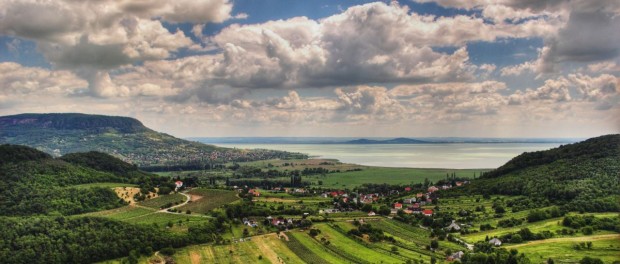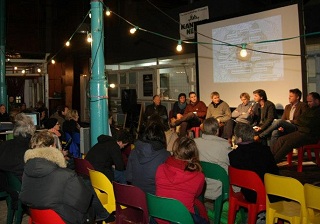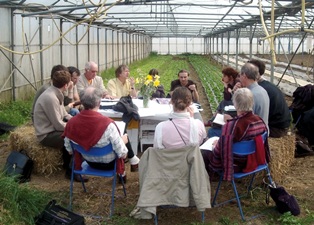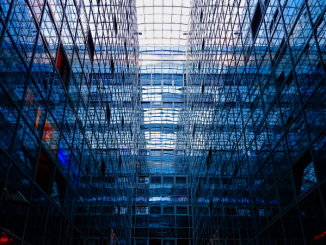
“Land is a finite resource. It is subject to competing pressures from urbanisation, infrastructure, increased food, feed, fibre and fuel production and the provision of key ecosystem services.
But it’s also a shrinking resource. Almost 1000 km2 of agriculture or natural land disappears every year in the EU, as it is converted into artificial areas. More EU land is affected by degradation all the time, and ecosystem services are lost as a result.
This is a global problem. The EU contributes to land degradation in third countries, as we are a net “importer” of land embedded into imported products. Demand for areas to settle, grow food and biomass is rising around the world, and climate change is likely to impact on land demand, availability and degradation.”
So says the EU Commission which also hosted a conference and produced a publication on ‘Land as a resource’ in Brussels on 19 June 2014. This event highlighted the importance of good land management to address European and global challenges, EU shortcomings and conflicting policy drivers.
It is thus disappointing that for 2016, land as a resource has been de-emphasised by the Commission in its work programme. NGOS have responded.
In a letter co-signed by Arc2020 and a number of NGOs, Friends of the Earth Europe’s Director Magda Stoczkiewicz has written to Frans Timmermans – First Vice President of the European Commission – requesting that the Communication on Land as a Resource is included in the Work Programme of the European Commission for 2016.
The letter points to the serious pressures on land in, and because, of the EU; the priority, recently de-emphasised, given to focusing on land in EU policy; and the role of land in addressing many EU and global targets.
Full text of the letter is below:
BEGINS
We are writing to request that the Communication on Land as a Resource is included in the Work Programme of the European Commission for 2016.
Land is the hidden resource that sustains every aspect of our society, from food to products, buildings and energy. Yet the EU appears unaware of the real scale of its land consumption, as well as the environmental, social and economic impacts.
Previous studies have revealed that in 2004, the EU’s land footprint was 640 million hectares, 1.5 times the size of the EU (1), and will increase further if policies that drive an increase in consumption, such as EU bioenergy policies, are not changed (2). Our significant land consumption has damaging consequences both in the EU and outside, including the destruction of forests and biodiversity, soil degradation, land grabbing, community displacements and reduced EU security due to reliance on imports.
The Commission has a necessary role to play by providing direction and a clear approach on EU land policies. However, in reality what we are seeing is a real incoherence between different policies (such as the Renewable Energy Directive and Resource Efficiency Roadmap), making the EU extremely dependent on having constant access to an ever-increasing amount of land in and outside Europe.
In 2014, DG Environment commissioned preliminary research to develop a methodology to measure the EU’s land footprint and the impact that EU policies have on land, with a view to paving the way for a future Communication on Land as a Resource. That initiative was a follow-up to the Resource Efficiency Roadmap (3), a 2011 EC Communication, which included as a milestone “By 2020, EU policies take into account their direct and indirect impact on land use in the EU and globally, and the rate of land take is on track with an aim to achieve no net land take by 2050”.
We need these topics put back on the agenda, along with measuring carbon, material and water consumption in order to obtain a broader picture of the environmental and social effects of activities.
Our organisations strongly support the need to move forward on measuring and setting reduction targets for the EU’s land consumption and believe that there must be a commitment to develop this essential area. The Land as a Resource Communication is a key stepping stone to bring this discussion onto the political agenda and increase awareness among the EU institutions, member states and citizens.
Tackling our land footprint would also help the EU reach its targets to halt biodiversity loss by 2020 and end deforestation by 2030. Furthermore, the adoption of the UN Sustainable Development Goals this year will require efforts from each country to meet the universal goals, and the EU can use this opportunity to pioneer in the area of sustainable land use and consumption.
Therefore, we urge you to ensure that a Land as a Resource Communication is included in next year’s Commission’s Work Programme. It is time for the Commission to tackle land issues with a high level of ambition, like it has done in many other areas, and to do so with a long-term vision. Taking such steps will deliver Europe’s vision of jobs and growth, will make European companies more resilient, will ensure long-term sustainability of global resources, and will have a positive impact on the health of people and the planet.
We thank you for your commitment, and remain available should you like to exchange more details on this issue.
Floris Faber, Director – Act Alliance
Laura Sullivan, Director for Europe – Action Aid
Samuel Féret, Co-ordinator – Agricultural and Rural Convention 2020
Almuth Ernsting, Director – Biofuelwatch
Angelo Caserta, Regional Director – Birdlife International, Europe and Central Asia
Agnes Zolyomi, General Secretary, CEEweb for Biodiversity
Philip Lymbery, Chief Executive – Compassion in World Farming
Szőcs-Boruss Miklós Attila, President – Eco Ruralis
Laura Degallaix, Director – Eco Standard
Javier Sanchez, Director – European Coordination Via Campesina
Jeremy Wates, Secretary-General – European Environmental Bureau
Saskia Ozinga, Campaigns Coordinator – FERN
Magda Stoczkiewicz, Director – Friends of the Earth Europe
Samuel Féret, President – Groupe de Bruges
Marco Schlüter, Group Executive Director – IFOAM EU
Natalia Alonso, Deputy Director of Advocacy & Campaigns – Oxfam EU Advocacy Office
Paolo Di Croce, Secretary General – Slow Food
René Becker, President – Terre de liens
ENDS
More
All Arc2020 articles on Land Grabbing
Full text of the letter here (PDF)




